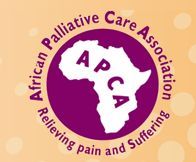Global Atlas highlights unmet need for palliative care
28 January 2014 – Only 1 in 10 people who need palliative care are currently receiving it, according to the Global Atlas of Palliative Care at the End of Life, published jointly by the World Health Organization (WHO) and the Worldwide Palliative Care Alliance (WPCA). The Atlas is the first document to map the need for and availability of palliative care globally. The importance of this form of care is being emphasized by the WHO Global Action Plan for the Prevention and Control of Noncommunicable Diseases 2013–2020 agreed on by WHO Member States in 2013.
Palliative care relieves the physical, psychosocial and spiritual suffering of patients with serious advanced illnesses and their families and is provided by teams of professionals and community volunteers.
About one third of those needing palliative care suffer from cancer. Others have progressive illnesses affecting their heart, lung, liver, kidney, brain, or chronic, life-threatening diseases including HIV and drug-resistant tuberculosis.
It is estimated that every year over 20 million patients need palliative care at the end of life. Some 6% of these are children. The number of people requiring this sort of care rises to at least 40 million if those that could benefit from palliative care at an earlier stage of their life are included. If family members are also taken into consideration (hospice and palliative care always includes some aspects of care for multiple family members) the actual need could double or triple.
In 2011, approximately 3 million patients received palliative care, the vast majority at the end of their life. Although most palliative care is provided in high-income countries, almost 80% of the global need for palliative care is in low- and middle-income countries. Only 20 countries have palliative care well integrated into their healthcare systems[1].
“The Atlas shows that the great majority of the global need of end of life care is associated with noncommunicable diseases. While we join efforts to reduce the burden of the biggest killers in the world today, we must also alleviate the suffering of those with progressive illness who do not respond to curative treatment,” said
Dr Oleg Chestnov, WHO Assistant Director-General for Noncommunicable Diseases and Mental Health.
The Atlas calls on all countries to include palliative care as an essential component to every modern healthcare system. This means addressing barriers such as:
1) lack of policies recognizing palliative care and the need for care both at the end of life and during progressive illnesses;
2) lack of resources to implement services, including access to essential medicines, especially pain relievers;
3) lack of education for health care professionals and members of the public about the benefits of palliative care.
Dr Emmanuel Luyirika, the Executive Director of the African Palliative Care Association (APCA) added, “This atlas highlights the global need for greater palliative care provision but specifically highlights the severe gap in many parts of Africa. Millions of Africans are suffering unnecessary and preventable pain and other symptoms. I am delighted that the World Health organisation has taken this opportunity to highlight these shortcomings.”
He added, “I would like to congratulate the countries of the world and the World Health Organization who, at the Executive Board of the World Health Assembly, adopted a palliative care resolution last week aimed at strengthening palliative care and integrating it into health systems.”
“Our efforts to expand palliative care need to focus on bringing relief of suffering and the benefits of palliative care to those with the least resources. This will take courage and creativity as we learn from each other how to integrate palliative care into existing but very limited healthcare systems.” added David Praill, Co-Chair of the WPCA.
Last week, the Executive Board of the WHO called on Member States to strengthen palliative care as a component of integrated treatment throughout the life course and recommended that the 67th World Health Assembly adopts a resolution on the subject in May 2014.
The Atlas can be downloaded at http://www.who.int/nmh/publications/en/ or at http://www.thewpca.org/resources
Global Action Plan for the Prevention and Control of NCDs 2013-2020: http://www.who.int/nmh/events/ncd_action_plan/en/
Stay with Sierra Express Media, for your trusted place in news!
© 2014, https:. All rights reserved.




